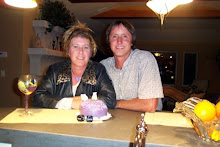One of the longest threads in the history of Michel Fortin's Copywriter's Board is "Jesus, The Master Copywriter." This topic caused a stirring back then and pulled in many opinions that both agreed with my position and bluntly disagreed with my views.
Irrespective of how you assess the Bible, as mere literature or Holy Writings, the fact is that there are many copywriting lessons to be learned from this all time bestseller. Considering the position that the Bible holds in the literary world and the number of books inspired by the Bible you shouldn't be surprised that the "secrets" of persuasion are also hidden in its pages.
Here was where the great literary genius William Shakespeare got his inspiration and he is considered the master of English literature.
It so happens that I also get my inspiration from these pages-for copywriting!
Now let's look at one example and it's recorded in the Gospel according to John in chapter 4 of his book. It commonly called the story of the woman at the well. And it goes something like this ...
It's midday and Jesus waits by a well while his disciples go to a nearby town to buy food. A woman approaches the well to draw water, a very uncommon time since the most women come in the cooler parts of the day to collect water.
Jesus asks her for a drink to which she is very surprised that a Jew should ask a Samaritan woman for such a favor. These two people groups had no dealings with each other except for trade and business.
The woman questions Jesus request to which he replies that if she really knew who she was talking to she would ask him for living water so she never has to return to the well again. What? This really got her attention because such "living water" would mean that she would never have to face the stare of neighbors who shunned her as a moral failure.
But she is puzzled by the fact that Jesus has nothing to draw water from the well, so how could he give her "living water"? She immediately compares him to Jacob who dug the well centuries ago, "Are you claiming to be better than Jacob?"
Once Jesus had her attention he immediately asked her to call her husband. She immediately went on the defensive and claimed she had no husband. Then Jesus indicated that the man she was living with was not her husband but she was married four times before. Ouch!
This was a personal blow to her ego but it came only after Jesus had gained her interest by making her an incredible offer-living water.
Because this subject was so uncomfortable she tried to change the course of the conversation into a theological debate about the right place to worship. Jesus entertained her question anyway and she finally became convinced that he was not an ordinary man.
She finally left her water pots-the very thing she came for-and ran into the village to tell every one about her encounter. (Talk about word-of-mouth advertising.)
You are free to read the original narrative for yourself but here are some pointers that may be of interest to you as a copywriter and marketer:
1. Jesus spoke to her as an individual not as a crowd or a group of people. He made her feel that she was the most important person to him right there and then. Every good copywriter is able to make the reader of the sales letter feel like they are listening to a friend sharing some good advice, instead of one nameless member in a crowd.
2. Jesus knew her problem. He understood his "market" and what the woman was looking for. If you can determine the driving force behind your target market then the sale is 50% made. She wanted water but MORE than just water. She was looking for a reason to make a change in her life.
3. Jesus spoke to her in the language she understood. He entered the conversation that she was already mentally engaged in. She wanted a way to stop coming to the well at midday but more so a reason not to be ashamed of her life. Speak in the language of your market and you'll get them listening. Speak about what they are already interested in and you have a friend.
4. Jesus answered her objections by selling himself as the solution to her problems. She had two major objections: He had nothing to draw the water and they had a big difference in beliefs. Both of these objections were answered which led to the "sale." He not only treated her with respect (it wasn't considered proper for a man to speak with a woman in public like this) but also gave her hope for the future. We can say that he over-delivered, so much that ...
5. He made a happy customer who was more than willing to share the good news with others!
This narrative is a classic study of how to turn "enemies" into friends, prospects into your best "evangelist" and curiosity seekers into lifelong customers.
Go ye and do likewise!
Ray L. Edwards is a freelance copywriter, copywriting coach, Internet marketing consultant and published author. He has made his clients millions of dollars online and can be contacted about his services at http://www.webcopy-writing.com
Goal Planning For Success
No comments:
Post a Comment